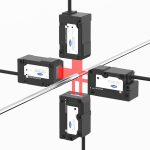In the intricate world of industrial automation, pressure sensors have emerged as unsung heroes, quietly transforming operations across countless sectors. These sophisticated devices, capable of measuring and monitoring pressure with remarkable precision, have become indispensable components in modern industrial ecosystems. From manufacturing plants to energy facilities, pressure sensors are driving efficiency, enhancing safety, and enabling unprecedented levels of control in processes that form the backbone of our global economy.
The manufacturing sector has witnessed one of the most significant transformations through pressure sensor integration. In hydraulic and pneumatic systems, these sensors provide critical data that ensures optimal performance while preventing catastrophic failures. Automotive assembly lines utilize pressure monitoring to maintain consistent quality in braking systems, engine performance, and safety features. The food and beverage industry relies on pressure sensors for precise control during processing, packaging, and sterilization processes, where even minor deviations can compromise product quality and safety standards.
Energy production and distribution represent another frontier where pressure sensors demonstrate their vital importance. In oil and gas operations, these devices monitor wellhead pressure, pipeline flow, and refinery processes, helping prevent environmental disasters while maximizing extraction efficiency. Renewable energy sectors, particularly wind power, employ pressure sensors in hydraulic pitch control systems to optimize turbine blade angles according to wind conditions. Nuclear power plants implement multiple redundant pressure monitoring systems as part of their critical safety protocols, ensuring stable operation under extreme conditions.
Water management and treatment facilities have embraced pressure sensor technology to revolutionize their operations. Municipal water systems use distributed pressure sensors to detect leaks, monitor pump performance, and maintain consistent water pressure throughout distribution networks. Wastewater treatment plants rely on pressure differential measurements to control filtration processes and monitor sludge levels. In agricultural applications, precision irrigation systems utilize pressure data to deliver exact water amounts while conserving resources and reducing operational costs.
The aerospace and aviation industries push pressure sensor technology to its limits, demanding extreme accuracy and reliability under challenging conditions. Aircraft utilize numerous pressure sensors for altitude measurement, cabin pressure control, fuel system monitoring, and engine performance optimization. Space applications require sensors capable of functioning in vacuum conditions while withstanding intense vibration and temperature variations. These high-stakes environments have driven innovation in sensor technology, leading to developments that eventually benefit industrial applications across all sectors.
Industrial safety systems have been fundamentally enhanced through pressure sensor integration. Pressure relief valves connected to monitoring systems can automatically shut down processes when dangerous conditions develop. Chemical processing plants use pressure sensors to maintain safe operating conditions in reactors and storage vessels, preventing potentially catastrophic incidents. Mining operations deploy pressure monitoring in ventilation systems and equipment hydraulics, protecting workers while ensuring continuous operation in challenging underground environments.
The emergence of Industry 4.0 and smart manufacturing has elevated pressure sensors from mere measurement devices to intelligent components within interconnected systems. Modern pressure sensors equipped with digital interfaces and self-diagnostic capabilities can communicate with control systems, predict maintenance needs, and automatically adjust processes in real-time. This connectivity enables predictive maintenance strategies, where pressure data trends help identify potential failures before they occur, significantly reducing downtime and maintenance costs while improving overall equipment effectiveness.
As industrial applications continue to evolve, pressure sensor technology advances to meet increasingly demanding requirements. Developments in materials science have produced sensors capable of operating in extreme temperatures and corrosive environments. Miniaturization allows installation in spaces previously inaccessible, while improved accuracy enables more precise control over industrial processes. Wireless technology and energy harvesting capabilities are eliminating wiring constraints, opening new possibilities for sensor deployment in remote or rotating equipment.
The future of industrial pressure sensing looks toward even greater integration with artificial intelligence and machine learning systems. Smart algorithms can analyze pressure data patterns to optimize processes beyond human capability, identifying subtle correlations that lead to improved efficiency and quality. As industries worldwide face increasing pressure to improve sustainability, these intelligent sensing systems will play crucial roles in reducing energy consumption, minimizing waste, and enhancing environmental compliance across all industrial sectors.
From ensuring safety in hazardous environments to enabling precision in manufacturing processes, pressure sensors have become fundamental components of modern industrial operations. Their continued evolution promises even greater advancements in efficiency, reliability, and intelligence across countless applications. As industries embrace digital transformation, these unassuming devices will continue to play critical roles in shaping the future of industrial automation, proving that sometimes the most significant revolutions come in the smallest packages.




Leave a Message